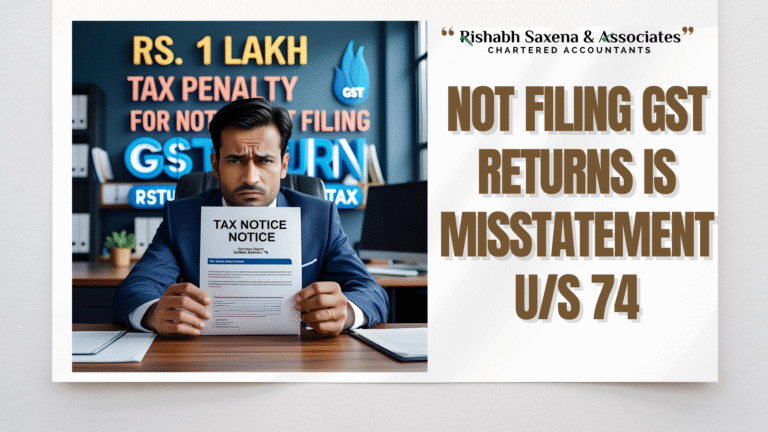One Person Company (OPC) vs Private Limited Company: A Detailed Comparison
When starting a business, entrepreneurs must choose the most suitable structure for their venture. Two popular forms of business entities under the Companies Act are One Person Company (OPC) and Private Limited Company (PLC). Each has its unique features, benefits, and compliance requirements. This article provides a detailed comparison of the two structures, highlighting their differences in terms of legal requirements, ownership, compliance, and other essential factors.
What is an OPC (One Person Company)?
An OPC is a business structure designed for solo entrepreneurs. It allows a single individual to operate as both the owner and the director. Introduced under the Companies Act 2013, OPC provides limited liability protection, meaning the owner’s personal assets are safeguarded from business liabilities. However, an OPC requires a nominee director who assumes control in the owner’s incapacity.
What is a Private Limited Company?
A Private Limited Company (PLC) is a widely recognized business structure with ownership distributed among a minimum of two and a maximum of 200 shareholders. Governed by the Companies Act 2013, PLCs offer limited liability protection, distinct legal identity, and greater flexibility for raising funds and attracting investors.
Similarities between OPC and Private Limited Company
| Aspect | Details |
|---|---|
| Governing Law | Both are governed by the Companies Act, 2013. |
| Registration Process | Registered with the Ministry of Corporate Affairs (MCA). |
| Limited Liability | Owners/shareholders enjoy limited liability protection. |
| Separate Legal Entity | Considered distinct legal entities from their owners. |
| Taxation | Taxed under the Income Tax Act, 1961. |
| Audit Requirements | Must appoint an auditor and undergo an annual statutory audit. |
| Compliance Filing | Annual returns must be filed with the Registrar of Companies (ROC). |
OPC vs Pvt Ltd: A Detailed Comparison
| Parameter | OPC | Private Limited Company |
| Entity Name | Must include “(OPC) Private Limited.” | Must include “Private Limited” or “Pvt. Ltd.” |
| Ownership Structure | Single owner; nominee director mandatory. | Minimum of two shareholders; ownership shared among multiple stakeholders. |
| Minimum Capital | No minimum capital; mandatory conversion if paid-up capital exceeds ₹50 lakhs. | No minimum capital requirement. |
| Number of Members | One member only. | Minimum of two and maximum of 200 members. |
| Number of Directors | Minimum of one director. | Minimum of two directors. |
| Transfer of Shares | Restricted transfer; requires alteration of MOA. | Shares can be freely transferred, subject to AOA provisions. |
| Foreign Ownership | Not permitted for foreign nationals or NRIs. | Foreign nationals and NRIs can own shares; 100% FDI allowed in certain sectors. |
| Expansion Limitations | Mandatory conversion into PLC if turnover exceeds ₹2 crore or capital exceeds ₹50 lakhs. | No mandatory conversion; unlimited growth potential. |
| Compliance Requirements | Limited compliance compared to PLC. | More stringent compliance, especially for larger businesses. |
| Credibility | Limited due to small size and single ownership. | Higher credibility; preferred by investors and financial institutions. |
| External Funding | Difficult to raise external funds. | Easy to secure funding through shares, venture capital, or loans. |
| Taxation | Same corporate tax rates as PLC. | Subject to corporate tax rates under the Income Tax Act. |
Compliance Requirements: OPC vs PLC
| Compliance Aspect | OPC | Private Limited Company |
| Annual Return Filing | File MGT-7A within 60 days of the financial year-end. | File MGT-7 within 60 days of the AGM. |
| Financial Statements | File AOC-4 within 180 days of the financial year-end. | File AOC-4 within 30 days of the AGM. |
| Board Meetings | One meeting every six months if more than one director exists. | Minimum of four board meetings annually. |
| Auditor Appointment | Appoint auditor within 30 days of incorporation (Form ADT-1). | Appoint auditor within 30 days of incorporation (Form ADT-1). |
| Income Tax Return | File ITR-6 by September 30 each year. | File ITR-6 by September 30 each year. |
| Director KYC | File DIR-3 KYC annually. | File DIR-3 KYC annually. |
Key Factors to Consider
- Business Structure: OPC is ideal for sole entrepreneurs; PLC is better for businesses with multiple stakeholders.
- Liability Protection: Both offer limited liability, but control is distributed among shareholders in PLC.
- Foreign Ownership: Only Indian citizens can form OPCs, while foreign nationals can invest in PLCs.
- Compliance: PLCs have more rigorous compliance, suited for larger businesses.
- Expansion Potential: PLCs allow for easier growth and external funding compared to OPCs.
FAQs
Q1. Can an OPC raise funds from investors? A: No, OPCs have limitations in raising external funds due to single ownership. PLCs are better suited for attracting investors.
Q2. Is foreign direct investment (FDI) allowed in OPCs? A: No, FDI is not permitted in OPCs. However, PLCs can attract FDI through the automatic route in certain sectors.
Q3. What happens if an OPC exceeds the turnover limit of ₹2 crores? A: The OPC must mandatorily convert into a Private Limited Company if its turnover exceeds ₹2 crores or its paid-up capital exceeds ₹50 lakhs.
Q4. Which is better for a start-up: OPC or PLC? A: PLC is more suitable for start-ups planning to grow and attract investors. OPC is ideal for small businesses with single ownership.
Q5. Do OPCs need to hold annual general meetings (AGMs)? A: No, OPCs are exempt from holding AGMs if there is only one director.
Conclusion
Choosing between an OPC and a Private Limited Company depends on your business goals and operational needs. OPCs are best for solo entrepreneurs with limited growth ambitions, while PLCs offer greater flexibility and credibility for scaling businesses. Understanding the differences ensures you select the most appropriate structure for your venture.
Start your company journey today with IndiaFilings. Get expert assistance for hassle-free company registration and ensure your business is set up the right way from the start!
If you want us to consult you in choosing the right form of commencing a business, write us at office@carsaxena.in






